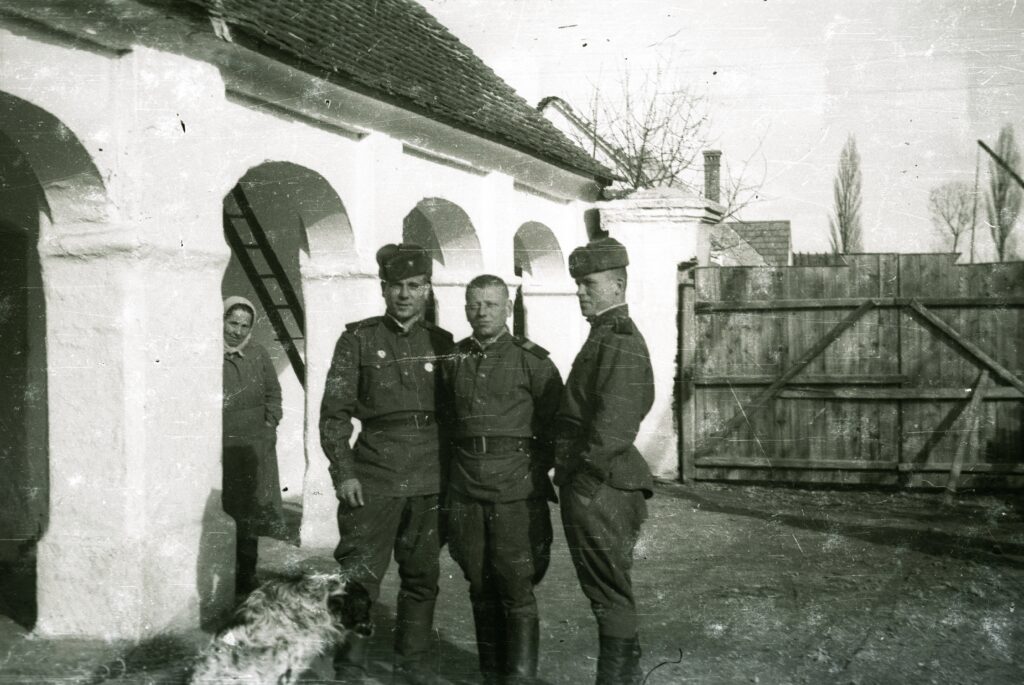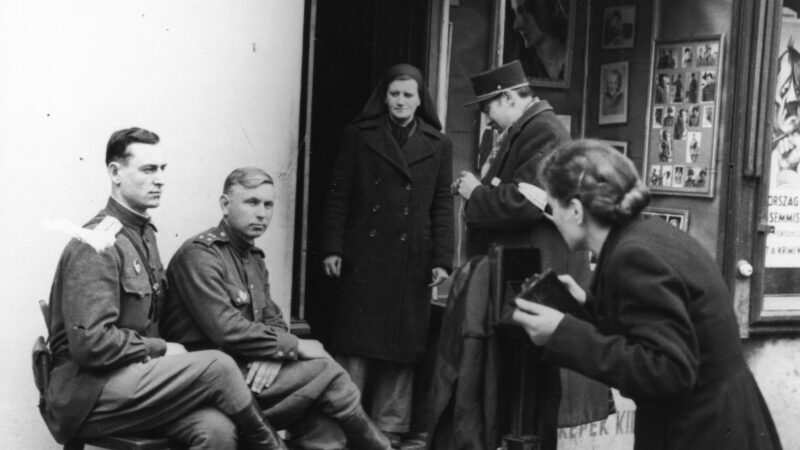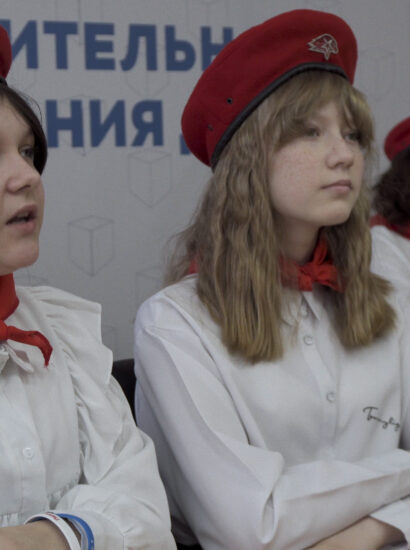Celebrating the Italian publication of Alaine Polcz’s A woman on the Front, the publisher recently organised a book launch event in Milano. When the audience was asked if anyone had any questions, a Russian diplomat stood up and read out a political statement. In his speech, he explained that the book is biased and it puts soviet soldiers into negative light. He then finished his 8-minute rant by a mild threat, saying that demonising Russia won’t end well. Let me point out the irony here: the book was translated into Russian and published in 1998, and the translator apologised to Polcz in his epilogue!

Soviet soldiers with a woman looking in the background in Hungary in 1945 (Photo: Fortepan / Pálfi András)
This incident shows how far the Russians are willing to go (to the Centofiori bookshop in Milano, apparently) to influence what the public sees and thinks about their country. Two years ago, after Russia launched its attack on Ukraine, the whole world was shocked when stories about the occupying Russian troops circulated on the internet. The soldiers had systematically raped the civilian population before slaughtering them and leaving their bodies on the side of the road. These stories didn’t exactly made the Russians sympathetic, so it’s obvious that they are not enthusiastic about a book which shows that they had done the same thing 70 years ago.
However, the phenomenon is not new, rape as a weapon of war has been used in armed conflicts since the beginning of time.
As a tactic, it is extremely effective in humiliating and terrorising the civilian population (see: Rwanda, Bosnia etc.).
Alaine Polcz’s book is still one of the most important memoirs of the Second World War. On one hand, she faces her own traumas, about which she could not speak for decades. But more importantly, A woman on the Front opens a discussion and gives the chance to other survivors to tell their stories, lifting the stigma and the shame which are still very much connected to rape.
Attacking this book and relativising the crimes of the soviet troops is completely unacceptable in 2024. Even from the darkest communist period, there are statistics that show that the number of STD patients have tripled in the year after the arrival of the occupying forces. According to the Central Venereology Hospital of Budapest, they treated 5208 patients in July 1945, and by June 1946, that number went up to 15 540, so there is a clear correlation between the appearance of the Russians and the skyrocketing of STDs (contrary to the Americans, the soviets didn’t get condoms and penicillin).
The Second World War seems far away, but the grandparents of today’s 30-40-somethings were sufferers of the horrors of the Russians, even if they were not willing to talk about it, not even decades later.
Slowly, the generation which encountered Russian troops is disappearing, but their children and grandchildren are still here. Ignoring the humiliation, suffering and trauma of these families is unacceptable.
But that was done by a Russian diplomat who was trying to alter history, so there’s nothing new there. The strange thing here is the ignorance of the Hungarian government. They ordered the German ambassador to explain the termination of a football coach, but when a Russian diplomat, who, by the way, represents Russia (and not a football club) diminishes the suffering of Hungarian people, they do nothing.
It’s even more interesting, because based on the ages of these politicians, their mothers and grandmothers were probably affected. Apparently, defending the interests of the Hungarian people is not that important when one should do it against the Russians.







